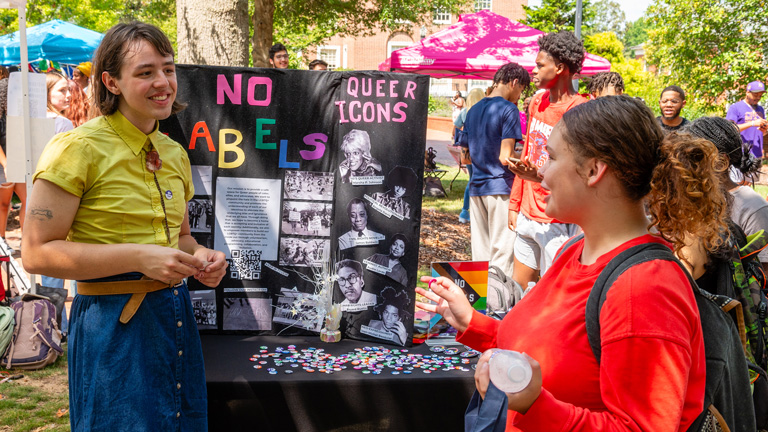Take Action
It is important to listen, learn, and engage in conversations around issues of systemic racism. But what’s needed most is concrete action.
We must move beyond our words and take proactive steps to examine our individual biases, rethink existing systems and structures, and implement plans for a more equitable future. Following are a list of upcoming events and ways to get involved in this work on campus.

UNCG Libraries – “Don’t Want to Ask”
This guide is designed to provide meaningful and helpful resources to anyone with questions about material regarding subjects that may be private or otherwise uncomfortable to talk about.

Triad Black Lives Matter Protest Collection
The purpose of the Triad Black Lives Matters Collection is to document the BLM movement, police brutality protests, and race relations in the Triad area of North Carolina. The collection contains digital photographs and video footage relating to the Black Lives Matter movement and the George Floyd protests.

Office of Intercultural Engagement
The Office of Intercultural Engagement (OIE) creates and delivers co-curricular programs to bring all students together for the purpose of deepening and broadening awareness, knowledge and skill around identity, culture, and our interconnected fate.

Racism and Health
To build a healthier America for all, we must confront the systems and policies that have resulted in the generational injustice that has given rise to racial and ethnic health inequities. We at CDC want to lead in this effort—both in the work we do on behalf of the nation’s health and the work we do internally as an organization.

Anti-Racist Resource Guide
Broaden your understanding and ability to combat racism. This document was created for use as as a resource for anyone looking to broaden their understanding of anti-racism and who want to get involved to combat racism, specifically as it relates to anti-Blackness and police violence.

Equity, Diversity and Inclusion at UNCG
Equity, diversity, and inclusion are actionable values. Inclusive, just, and equitable outcomes are promoted by good management, data-driven best practices, and intentional policies. Leadership, as a collaborative-participatory effort, and accountability sustain efforts toward embedded inclusive excellence.